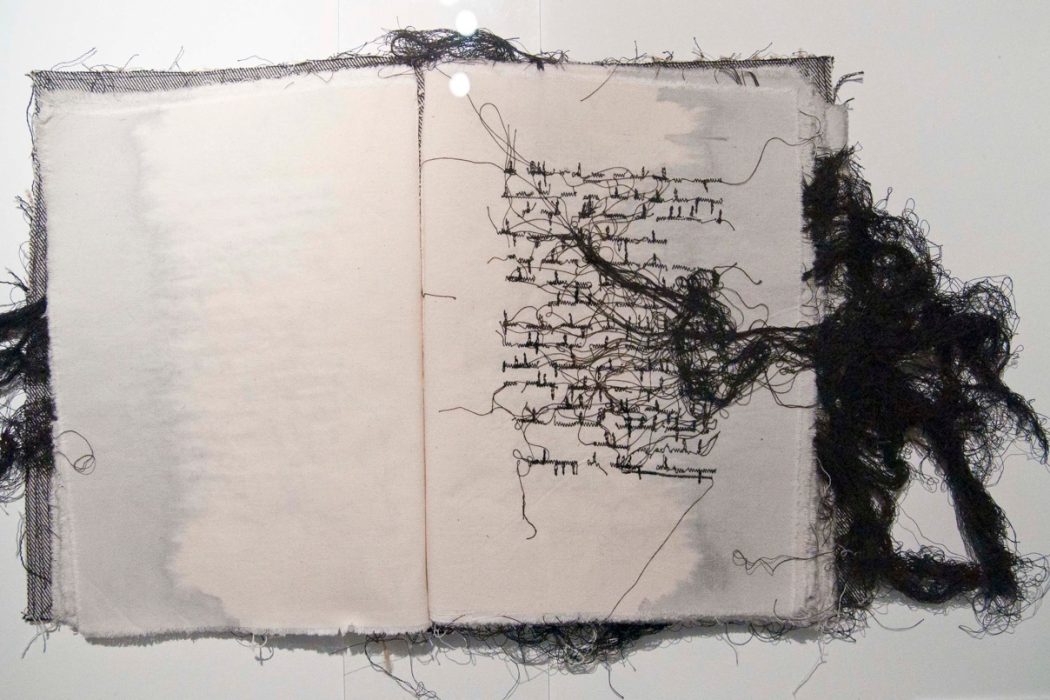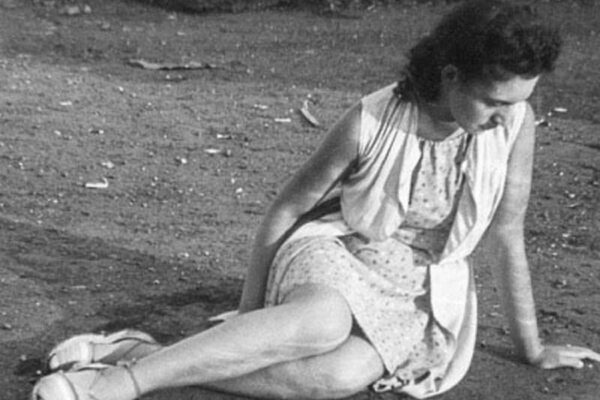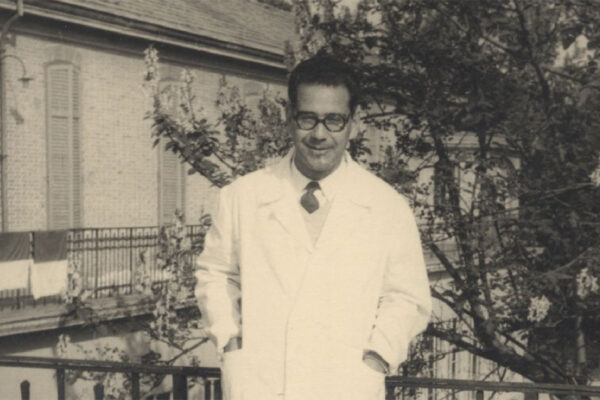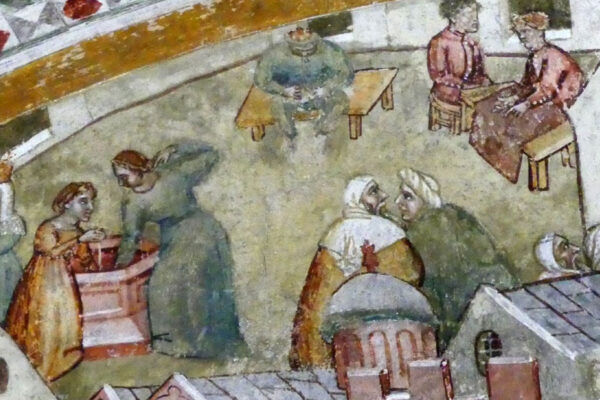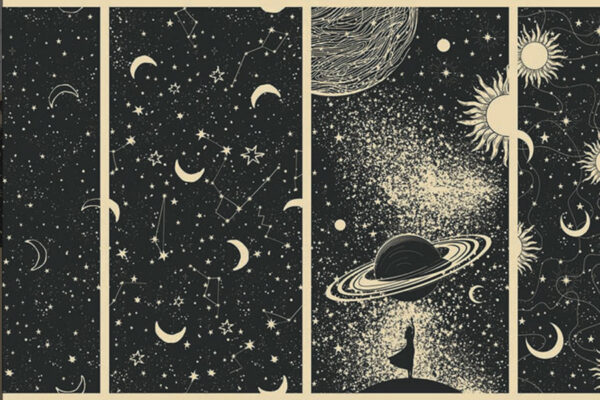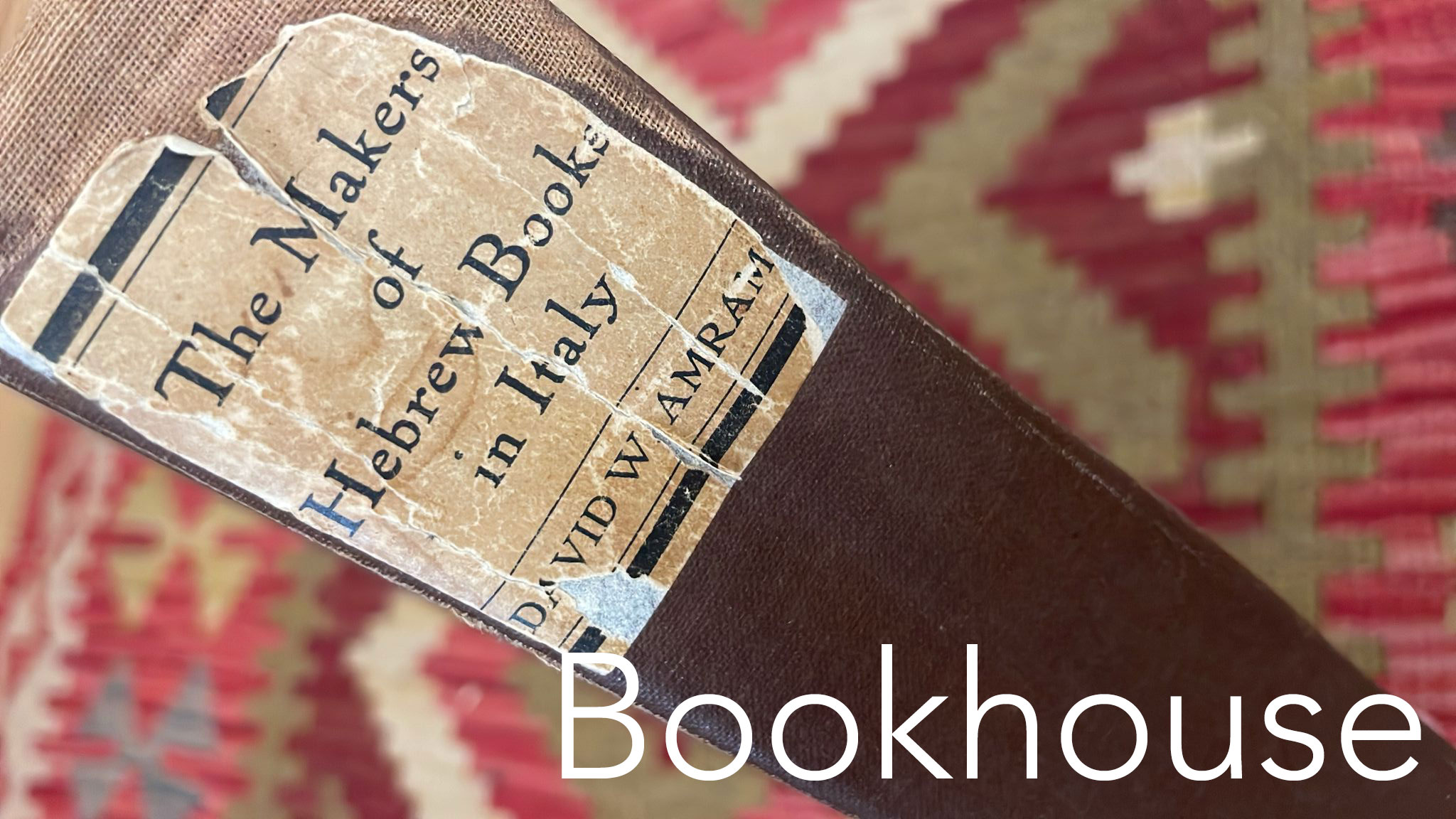She is the Director of the Babylonian Talmud Translation Project, an endeavor stemming from the Italian National Research Council and the Union of the Italian Jewish Communities to produce an Italian version of the Talmud. Strong of the participation of scholars, students, translators, and programmers, in September 2018, the project was presented at the 73rd United Nations General Assembly in New York.
In 2016 Clelia Piperno was named Woman of the Year by the “Lilith-Independent, Jewish and Frankly Feminist” magazine.
Thirty years ago, I was in the car headed to Munich, Germany. At a crossroads, I took the wrong turn, confusing left, and right as I often do. I continued to drive for several miles. Visibility was not bad. After about 10 miles—back then, without Google or Waze, I checked distances to follow the map—I saw a sign: Dachau. I abruptly pulled to the side, and my brain instinctively looked for a way to turn the car and go back. After turning, my first thought was: how could all these people who lived less than 10 miles from the end of humanity go on living after the war?
I found many answers: some from the German citizens of my generation I questioned. I learned of silent families, of families that exploded in front of the unexpected disclosure of the truth, often by chance. I learned of academic dissertations on these issues that were belittled or encouraged.
However, the definitive answers were given by the German heads of State when they bowed and asked for forgiveness, acknowledging responsibility for absolute guilt. These acts turned, paradoxically, into individual epiphanies at the moment they were enunciated, in the various places of memory where the horrors occurred; and in those created to prevent memory from vanishing and celebrating its value.
Some time ago, a great woman passed away in Rome. She was a militant of values rather than of political parties. Her name was Carla Di Veroli and left us still too young to bid goodbye to life. After the death of her aunt, Settimia Spizzichino, the only Italian woman who returned home after the deportation of October 16, Carla literally took the suitcase of memory and took it upon herself to carry it forward.
Where am I, a grain of sand, in this immensity of pain, anger, hatred, and impossible elaborations? I’ve been trying to understand it for as long as I remember.
Carla’s disappearance was, for some people, an opportunity to begin a sporadic and necessary reflection on the second generations of Holocaust survivors, the children of the saved: I am one of them, and I was thus myself saved. Some writers undertook this reflection through novels (few) and essays (very few). I want to mention one only: “The candles of memory,” by Dina Wardi, which photographs the torn soul of the children of the saved.
Every time I listen to my mother’s stories, more than anyone else, I feel the abyss tearing me apart, the guilt that I would like to express to her because I was not there to help her after the bombing of San Lorenzo in Rome. She was only twelve, in the darkness of the dust, she thought she was dead, but she felt alive. She had lost almost everything, even the new dress she had just bought and never worn. We all know that it would be impossible to override the time gap and give substance to the elusiveness of my pain. But my soul not does know this, cannot feel it and continues to ask me to run after my father, back in time, and help him lift the cart of rags for sale, while the patrols of the SS chasing Jews, strolled quietly all over Rome.
Why couldn’t I help him when they lived and slept—eight people—in one room?
I am well aware that these might seem the doubts of a mad person, but they in fact, come with sharing memory, together with the fear of not remembering everything, of missing a detail or part of a story—as this would be the real betrayal: forgetting. But what I truly fear is not being able to transform my mother’s memory into a universal value to be passed on to those who came after her and after me. I am afraid of not being able to give memory that transforming function without which none of the survivors would have decided to tell the unspeakable and find the words to do so. My mother did it. The moment they did it, they decided to give memory the highest value, the act of sharing that transforms the personal experience into a collective one.
From this process, a question arises, perhaps the most provocative: what matters if nothing matters? Is it the ability to transmit the values of her memory in today’s political and social situation? Try to make my, albeit modest, contribution to building a country where the word democracy is valid at all times and for everyone? Know how to make her feel safe again in her country? Perhaps.
What I was able to process is only partially adequate to capture the imponderable (not because it is small, but because it is so burdensome that it cannot be quantified).
In these same days, August 2021, in Afghanistan, once again, horror reigns. The Talibans slaughter the comedian Khasha Zwan during the evacuation of the allied forces. Then, we begin to see what happens to those who have not managed to leave.
How can I live in the midst of humanity that cannot stop horrors? On a night that generates dawn that does not create the day?
The algorithmic calculation of feelings has provided a way of life after the horror, even if the horror continues inside me. The day after, we have to go on living. But my life and that of the daughter of a fascist could never have been the same. Of course, memory can be transformative also in these differences, but only if the reflection on what happened allows to take the due responsibilities.
I asked my mother many times, what was her dream as a child, what did she dream of becoming?
She always replies in the same way: “I only had one dream: that hunger would end.” This clear and peremptory statement is often combined with the memory of when she asked the nuns, with whom her parents had managed to place her in hiding (paying an adequate fee) if she could have a candy. In response, she was given a clamshell with the suggestion to suck on it, and she did. Obviously, my mother is not crazy about clams.
And then, long after, because hunger did not end immediately, she lived through the hardships and sacrifices of the reconstruction. When she finally became a mother, her only aspiration for her daughters was that they would receive the education that had been denied to her.
Today, I am reminded of a powerful parallel with the Paralympic athletes. I have walked and run in life trying to overcome an insurmountable limit: the fear of not remembering. I ran with only one leg, waiting to find solid ground to rest the other leg for a start. But I could not find it.
This continuous effort has led my soul and my mind to take care of those who risk being forgotten, who have their rights violated, women first of all, and then all of those I see and whose pain I would like to take upon myself, aware that I will accept the pain of all, but only for very few, perhaps nobody, I will be able to do something.
This is why I did not turn the other way when the veil was lifted on Srebrenica. I accepted the modest role that was offered to me and allowed me to help. I did it just to go and tell at least the few people I was able to meet that I was there. That I had moved my grain of sand.
We had vowed that never again would we have seen racial horror. We have repeated it a thousand times and a thousand more.
At the root of my civil and daily commitment, is the understanding that memory is not an empty celebration but a growing process that becomes ever more complex.
Today, commemoration is pervasive. Every human hurdle has its own commemoration.
The commemorative bulimia risks becoming ritually repetitive, with its useless effort to come up with novelties, with new perspectives from which young minds should become interested in the meaning of the word “Shoah,” avoiding the simplifications and generalizations that make it vacant. This risk is amplified by the lions of the keyboard, who, at every minute of the day, find time to spread hatred against any ant who dares to cough. They don’t realize that they belong to the same anthill.
But I haven’t yet even touched the question, why did I stop that day in Germany, on the highway, and I did not go ahead? Why are there still people in my generation who, like me, cannot set foot in a death camp even with a strong commitment to the memory of the Shoah? Why? I have my own answer: I am not yet able to cope with the immensity of the pain and the helplessness. An irrational impotence that, combined with the pain that the soil where I should walk exudes, makes all this an intolerable burden for my little soul.
Yet I listened to stories of unspeakable horror, I know what happened. But the transition from the narration to the physical place of the unspeakable involves a pain that my hands cannot contain. I manage to face those stories and that horror when I go to Yad Vashem. There, history has transformed tragedy into the recognition of a right to a land for the Jewish people. This act has transformed centuries of oppression and the extermination in a generative direction.
In each of the phases through which this history unfolded, I see the centrality of the law. It is through the articulation of the law that we can presume to re-establish trust and objectivity, even though we understand that it is not sufficient.[1]
The decision to create two courts: Nuremberg and Tokyo, allowed to assess and punish individual responsibilities: because no one only organized trains[1]; someone in fact, was the extermination’s stationmaster. The trials were carefully prepared: not out of voyeurism, but as a warning and at the same time a confrontation between the crimes carried out by the State and the presentation of unequivocal testimonies of evil. This evil was produced by the views that generated the Holocaust: to create a new nation, in fact, in the Nazi-Fascist delirium, an entirely new world, with a single race, the fundamental principle of the construction of a new juridical order.
My mother says that after the war, my grandfather often spent time glued to the window speaking in a vacuum. It is impossible to make sense of this because of the fear of inadequacy, inadequacy of the shoulders and the hand: the image of Aeneas, Anchises, and Ascanius may be enough to vaguely convey the idea of a parent who continually slips from Aeneas’s shoulders and a little son who runs forward, slipping out of his hand. Each time I face my mother’s memory, I am Aeneas.
I feel the duty to physically render what must be transmitted with the most essential form of communication: language. Yet, this proves exhausting, because, perhaps, it is an impossible goal.
What can be an achievable goal today, what would allow words whispered against the glass of a window to materialize, be reconstructed and narrated?
My family had regarded socialism not only as the triumph of its own revolutionary dreams but the end of discrimination. Yet, in an extraordinarily short time, they were betrayed so many times, by those same ideals, by all the totalitarianisms history generated in those years.
Then came the final betrayal: the racial laws, which deprived my whole family of all rights, putting everyone’s life at risk within the shortest period. Theirs became precarious lives, sold many times for a few liras: one denunciation paid enough to carry on a few months on the black market.
What has kept me on my feet in these years of running without a leg, the leg that would have allowed me to be able to fulfill the task that every child would like to be able to fulfill, to put the pain and suffering of parents on their shoulders and make it lighter?
The awareness of knowing that in my race, I started from a certain fact. The recognition, made by the majority of European countries, that there had to be a full reparation for the immense damage inflicted on the Jews, and not only on them. It was a certain fact even though, in our country, this reparation still struggles to be understood. I am thinking of the painful story of the “benemerenze” awarded to Italian Jews, who, until a year ago, were held responsible for demonstrating their own discrimination. Already the use of the term “benemerenza” raises some perplexity. The Treccani encyclopedia reads:
benemerenza s. f. [der. of benemerente]. – Well deserving, having well deserved; particular merit, an act with which merit is acquired: b. patriotic; merit in the field of school, culture, art; diploma, certificate of b., issued in recognition of services rendered; so in the locuz. in b., for b., in recognition, etc.
What should be reparation of a wrong, for Italian Jews became a “check of benemerenza” to which Jews who were persecuted by the fascist regime are entitled. In order to obtain it, the burden of evidence was placed on the victims, that is, they needed to produce documentation of having suffered persecution, violence, and discrimination. As if these things were not already explicit in the laws that, in 1938, segregated the Jews as a race. It was the law, that expelled them from “all the schools of the kingdom,” stripped of their jobs, their assets, set them up for persecution, round ups, and finally, murder.[2]
As Carlo Levi said, words are like stones, this story is proof of this. The improper use of the word “benemerenza,” a merit, conceals the difficulty of a significant part of the Italian institutions to be able to recognize many, perhaps too many individual responsibilities, hidden, subdued, unspoken, but never forgotten by the victims.
Yet, perhaps surprisingly, the tenacity and strength of women like Carla and Settimia in and of itself generates life and the future.
They might look like petrified Aeneas, yet they find strength, like me, in the constant effort to put down that leg, which seems to find no support, push it to walk and go on to recognize everywhere the banality of evil, to process history and try to transform it, through a continuous effort, into the light of a candle. That light that illuminates the future of my children, of the children.
Image: Maria Lai, Untitled. Canvas and thread, 1977 ca.
Footnote
[1] The expression “crime against humanity” was used for the first time by three European nations, France, the United Kingdom and Russia, in condemnation of what became universally known as the Armenian genocide. The “Joint Declaration of France, Great Britain and Russia” released on May 24, 1915, contained an explicit reference to “recent crimes committed by Turkey against humanity and civilization”.
After the Second World War, a new season opened in the issues relating to human rights, together with the formation of a common international conscience about the existence of a universal law which is expected and virtually applicable to all human beings. Some crimes have therefore been considered as being grouped into a new category of offenses, of which it is assumed that any state or social grouping could require the sanction.
The London Agreement, which established the Nuremberg Tribunal (August 8, 1945) listed the “crime against humanity” as distinct from a war crime. The principle was maintained in the Statute of the International Military Tribunal for the Far East, also known as the Tokyo Charter (January 19, 1946).
Another step towards the codification of the crime was the “Convention for the prevention and punishment of the crime of genocide,” signed at the UN in 1948 (Resolution no. 260 of December 9 1948); The same definition was incorporated, in the 1990s, in the Statute of the Tribunal for the former Yugoslavia and Rwanda.
Finally, in 1998, with the approval of the Rome Statute, establishing the International Criminal Court, the notion of “crimes against humanity” was included in the list of main crimes prosecuted by the Court, together with war crimes and the crime of aggression.


